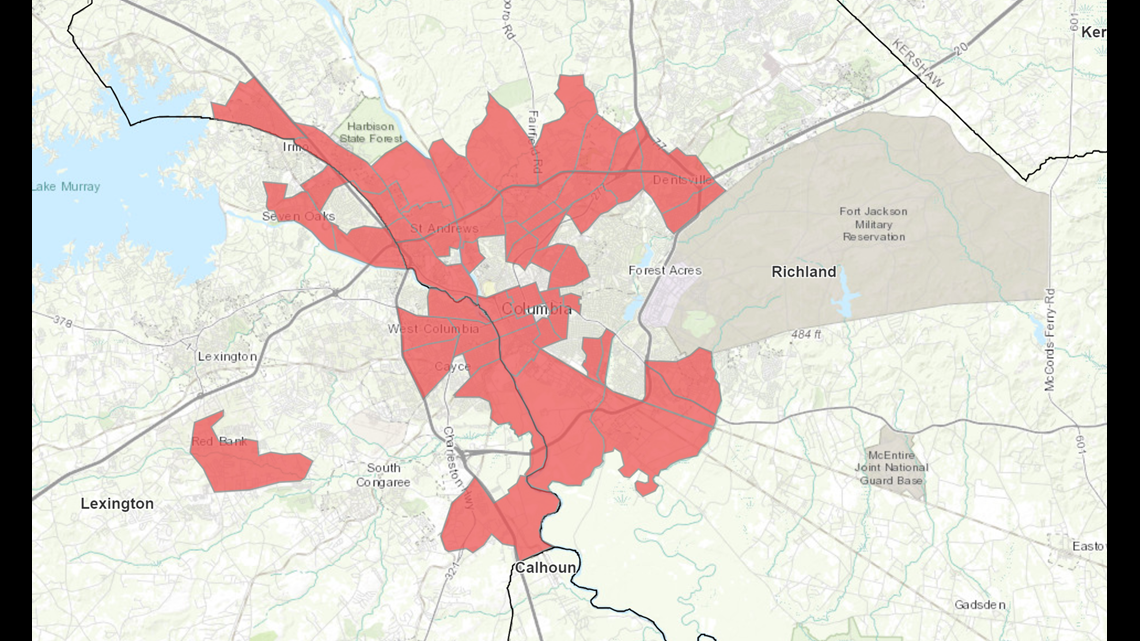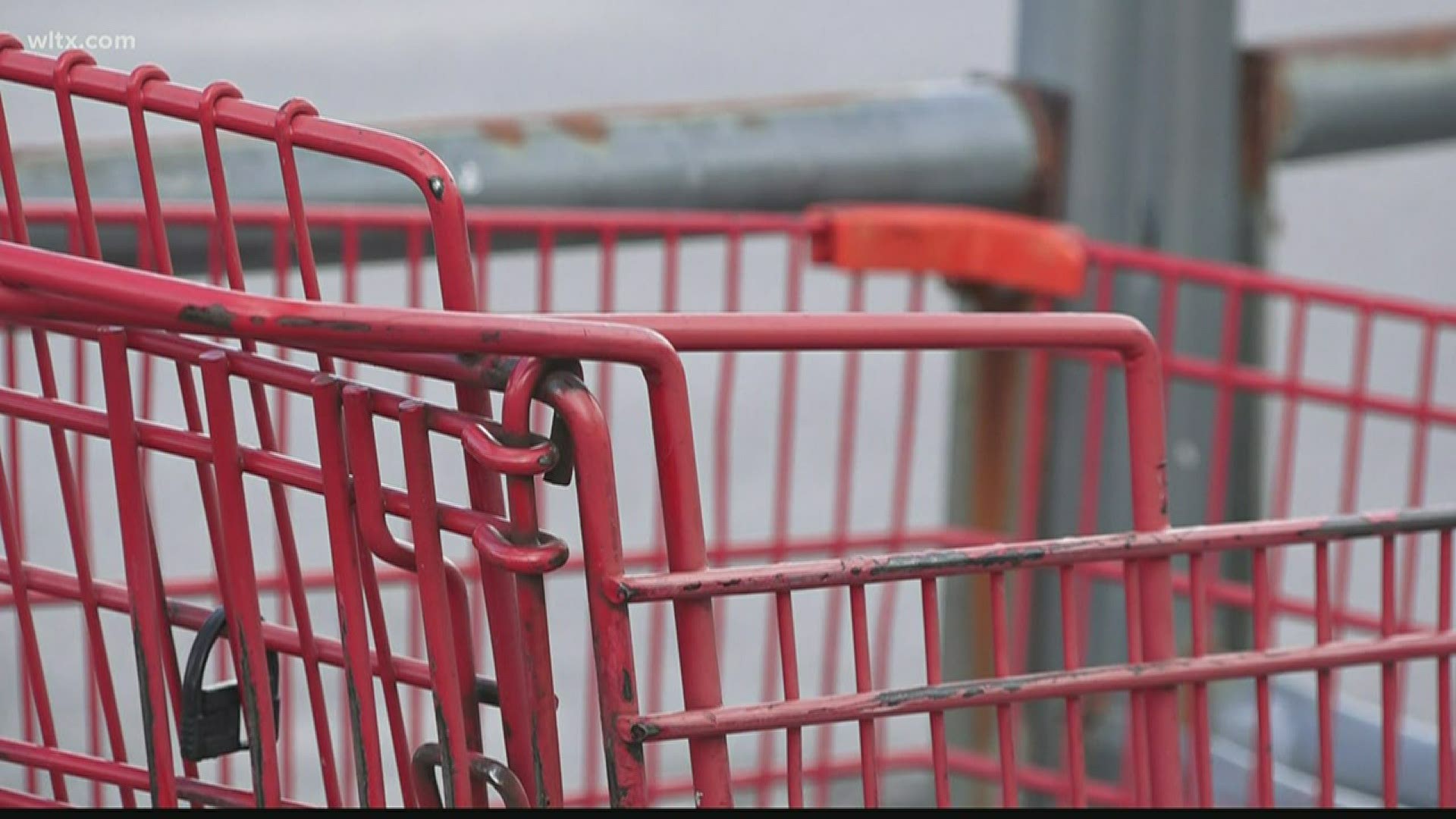COLUMBIA, S.C. — “How do you sleep at night knowing that someone is going hungry?”
It's a question that Zaylee Butler wants to asks city officials. Butler is a recent college graduate and is pleading for the City of Columbia to help fix the food deserts in her community.
“I saw a lack of access in my community. Especially where I live; it’s seven miles in each direction to the closest Walmart.” Butler lives in the 29203 zip code and says her neighbors can’t access healthy, affordable food.
“[People] don’t have the resources to access places like Forest Drive grocers or places out on Killian Road. And the grocers you do have in this area are low quality, lack product variety and they’re high in pricing because they’re the only grocer around so they have the ability to price gouge when the only other option you have is a Family Dollar.”


This map above is by the Department of Health and Environmental Control (DHEC). It shows where food deserts are in the Columbia area. A food desert is an area with little access to fresh fruits, vegetables and other healthy foods.
Butler started a petition to get more grocery stores in the 29203, 29204 and 29223 zip codes.
She says, “this area is predominately college students you also have USC kids living out there, it’s also a low wealth area as well. College students need access to food too because not everyone can afford a meal plan. When you can’t access food on your college campus and you can’t access a grocer that’s in walking distance, what are you going to do?”
City Council Woman Tameika Isaac Devine says the city is already addressing local food deserts with their food policy committee.
“[The committee] has made a great report that’s available on the City of Columbia’s website. they made the report to the City of Columbia in December 2019, so we are working to implement some of the recommendations.”
Butler is advocating for a Walmart, Aldi or Trader Joe’s in her community. Devine says it’s hard to get the attention of large corporations.
“Because of COVID, things will actually get more difficult than easier because of the things corporations are going through.” Devine says, “As far as access to the food chain, as far as the financial hit that COVID-19 is taking on corporations. I really think that as a city we have to look at innovative ways to partners with our local farmers our local business owners who may want to start a community grocery store.”
Devine says cities like Charleston and Atlanta have fresh fruit and vegetable food trucks that Columbia would like to replicate.
“It really would help because we have so many different areas that are in need, and the mobile food truck will help us hit several communities.”
Butler hopes her petition will inspire City Council to make changes now that will help her neighborhood.

